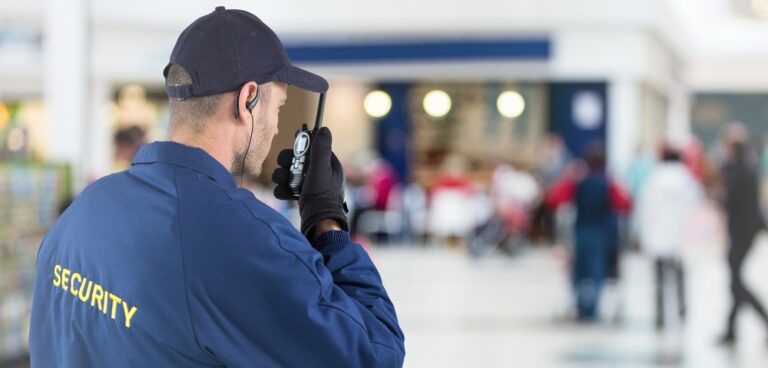Mike Evans, Director of Risk Intelligence, Securitas Group, explores the vital contribution of modern security solutions to the retail experience.
Retail, at its core, is driven by a positive customer experience. From services and store layouts that make it easy to find everything you need, to eye-catching visual merchandising, every touchpoint influences whether a customer makes a purchase or if they will return in the future.
Behind the scenes, there is an often-overlooked presence playing a pivotal role in shaping that experience: security.
Today, retail security goes beyond loss prevention. It is about creating an environment where customers can browse with confidence. It gives teams the peace of mind to focus on service, ensuring that the mitigation of potential threats is being managed appropriately in the background, with no disruption to the shopping experience.
The reality of retail risk
Yet retailers are facing a multitude of security risks. Recent figures reveal nearly a quarter of the UK population (24%) have witnessed shoplifting taking place in a shop in the last 12 months, highlighting the increased need for private security services on the front line of retail.1 This number is increasing, with record levels of crime in 20242, owing to both petty crime and highly coordinated, organised operations.
From anti-social behaviour to flash mobs coordinated via social media to loot target stores, today’s retail threat landscape is varied and volatile. The retail sector also remains a “soft target” for terrorism, particularly in high-footfall spaces such as shopping centres, city centres, and mixed-use facilities that combine retail, living space, offices, leisure, and hospitality.
Why retailers are turning to private security providers
The combination of these issues and risks is driving a shift in the sector. Retailers of all sizes – from independent boutiques to flagship chains and multi-use developments – are turning to private security experts to help them mitigate threats and safeguard their properties, personnel, and brand and reputation.
These partnerships go far beyond a highly visible security guard. Although this remains an effective deterrent, today’s increasingly complex threat and risk landscape demands holistic security solutions.
Modern security teams for retail customers include situational command experts, conflict resolution specialists, access control professionals, behavioural observers, and risk analysts, as well as front line security personnel and customer service operatives. The combination of roles makes way for a blended, intelligence-led security strategy, focused on what matters most to retailers: a positive customer experience, and the safety and security of their assets.
How retail security looks in practice
The best private security providers operate under a robust and agile framework.
- Prepare: Start with a comprehensive threat, vulnerability and risk assessment (TVRA). Identify relevant threats and assess your risk exposure, including analysing crime trends and brand-specific risks.
- Monitor: Blend visible deterrents (like uniformed officers) with advanced technology for surveillance and situational awareness like CCTV, facial recognition, body-worn cameras, behavioural analytics, and real-time intelligence.
- Act: Ensure a coordinated, fast, and proportionate response. Whether that is intervening in a shoplifting incident or safely managing an evacuation, it is about putting the right people with the right tools in the right place at the right time.
Training now includes scenario-based exercises for theft and burglar, flash mob incidents, protest escalation, and suspicious incidents that could be a precursor to a major incident, aligned with the ever-evolving threat landscape. Officers are taught to overlay data with real-world experience, using behavioural awareness and human insight to act early and effectively. In other words, it is not just about having the tools – it is about knowing how and when to use them.
Rising expectations amid Martyn’s Law
The Terrorism Protection of Premises Act 2025 (also known as Martyn’s Law) has now been incorporated into British law. Over the next two years there will be an implementation period before it comes fully into force, at which point businesses must be compliant with its requirements. Private security will not be optional – it will be a strategic asset for many retailers who are now recognised as having an ‘enhanced duty’ to implement the law, due to their capacity exceeding 800 or more persons.
Retailers must work collaboratively with their security partners to ensure they are proactively managing and mitigating the risks to their people and property.
Security and experience led
Retail security today should not be seen as a barrier but as an enabler. It is not just about cost and compliance. Intelligence-led security can give you the competitive edge. The new standard for retail security is intelligence-led and customer-first. Customers want to feel safe without feeling watched. Staff want to feel supported, not exposed. Businesses want to protect more than just their products and services; they want to protect their brand, manage their reputation, and increase overall trust in their business.
Ultimately, security must complement the customer experience, not detract from it.

